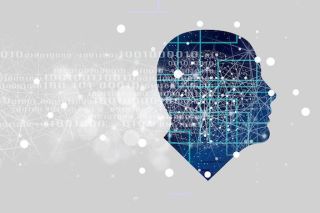Artificial Intelligence
The Unfathomable Cognitive Landscape of AI
Personal Perspective: Has AI created a new flatland of human limitations?
Posted September 9, 2023 Reviewed by Ray Parker
Key points
- AI innovation challenges human comprehension.
- Like "Flatland" beings, our cognitive limits struggle with new, complex dimensions.
- AI serves as a crucial translator of this intricate reality.

The age of disruptive innovation, which once captured our collective imagination and drove the engines of industry, seems almost nostalgic now. What we're witnessing today is a phenomenon far more intricate: stacked or compounded innovation.
Exponential advancements are layered on top of each other, each epoch-making in its own right. This goes beyond simple technological development; it challenges the very limits of human comprehension. Imagine not just machines that can imitate human behavior—this is old news.
The real conundrum is whether human minds can grasp the profound complexity these machines are starting to unfold. It's an inverse Turing Test of sorts, where the subject of examination is no longer the machine but humanity itself. The stakes are high; the consequences tear at the very fabric of humanity.
The Flatland Dilemma: Cognitive Limits in a Multidimensional World
To better appreciate the depth of this challenge, consider the novel Flatland, where beings in a two-dimensional world struggle to conceive of a third dimension. In a similar vein, our minds, sophisticated yet limited, are facing the daunting task of comprehending realms of thought and discovery that extend into unexplored dimensions.
These aren't just scientific or mathematical dimensions; they're cognitive and even philosophical ones. We're on the verge of a new reality that is so intricate and multilayered that it stretches our cognitive abilities to the brink. The question then arises: Can we ever understand this new world, or will parts of it forever remain beyond our grasp?
AI as Translator: Making Sense of a Complex Reality
As we journey deeper into this intricate reality, the role of artificial intelligence (AI) takes on a new importance. Think of advanced algorithms and AI systems not merely as tools but as indispensable guides, helping us navigate and make sense of a landscape that is increasingly complex. They serve as translators, capable of simplifying and interpreting the multi-dimensional truths and insights that are starting to emerge.
They're helping us break down complexity into chunks that our human minds can process. The act is not merely computational; it's deeply interpretative, requiring a blend of logic, intuition, and contextual understanding that we once thought was the exclusive domain of human intelligence.
A Human-AI Symbiosis
The inverse Turing Test may be an interesting perspective for humanity. It's not just an intellectual exercise but a practical gauge of our ability to keep up with the pace of innovation. It's about mutual understanding between humans and machines.
The AIs of (a very near) tomorrow might not only be vastly more intelligent but also capable of self-explanation, of distilling their complex reasoning into terms that humans can understand. This could lead to a form of symbiosis where each augments the capabilities of the other. However, this also brings up a philosophical question of great importance: If our understanding of reality becomes mediated by AI, what does that mean for human cognition? Are we entering into a new form of epistemological dependence?
The Curious Implications of Cognitive Evolution
We stand at an exciting, yet intimidating, crossroads. The world as we know it is changing at a pace and in directions that we can barely comprehend. The inverse Turing Test can be a test of our ability to adapt, grow, and engage with realities that stretch our imagination and capabilities.
As we advance into this uncharted territory, it becomes increasingly clear that we need to evolve—not just technologically but cognitively and philosophically. We need to develop new frameworks and methodologies for understanding and interacting with a world that is astonishing in its complexity and boundless in its potential.


